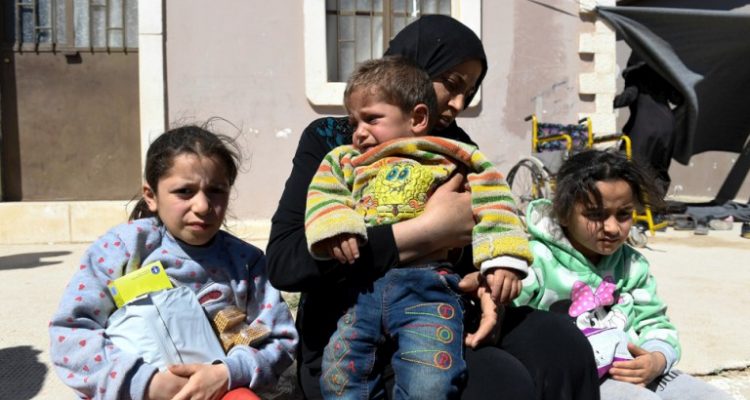Immediately after rebel groups and those who rejected the "settlement" agreement left eastern Ghouta six months ago, the regime began a precise census process, starting with those in the "temporary shelter centers”, which were intended for more than 100,000 civilians and military who left through Russia's "safe" crossings and reached the towns of the eastern Ghouta, where about 100,000 people remain.
In the five years that armed opposition groups controlled the area, eastern Ghouta witnessed tens of thousands of civil events including marriages, divorces, births and deaths, as well as the inheritance processes. These events were not officially registered with the regime. Rather, the civilian opposition in eastern Ghouta, represented by a local council and revolutionary leaders, took on the task of civil status registration in its own records. Before the forcible displacement from Ghouta, the opposition burned some records, and airstrikes hit dozens of local council centers and opposition civil registration departments.
With tens of thousands leaving for the "shelter centers" and the beginning of the census, the regime faced the issue of the missing civil events, as there were unregistered children and unregistered marriages. Additionally, "security settlements" require the most precise details about the life of the person who wants to "reconcile," including documentation of marriages, births and deaths, which need to be filed with regime civil status registries.
Civil status departments began to activate their role in eastern Ghouta and prepare places for regime employees to resume their work, after Russia issued direct orders to the regime's Interior Ministry. The civil status departments began an intensive search in former opposition areas and old civil registry departments to obtain what they could of the official documents from the detritus of war. The role of the registry departments (dawar al-nafous) was activated in most areas, even before the official opening of roads into eastern Ghouta and before electricity had reached most of its cities and towns, amid a campaign to inform residents of the need to register civil events as quickly as possible.
Resident sources told Al-Modon that the process of registering any event varies from one to the next. For instance, establishing a marriage or a child with the father and mother present does not take more than two witnesses and the family of the mother agreeing to the marriage in order for it to be duly established and the child registered. However, if the father or mother was killed, the event takes a larger number of witnesses, with deaths being recorded as the "presence of terrorists" in eastern Ghouta.
Dozens of residents have headed to the civil status centers to legally establish the deaths of their children and avoid later problems, especially given the lists of people wanted by security agencies and for compulsory conscription, which include the names of people who have died during bombardments or in fighting. Registering a death requires two witnesses, with a clear and explicit specification of the death, whether it be by bombardment or if the deceased was with some armed faction. In all cases, the death is officially recorded as an "act of terrorists”, regardless of the circumstances.
The regime is dealing with these events deliberately and calmly without causing any controvery, according to Al-Modon's sources, which added that the regime is blurring the boundaries of the crimes which it committed against the citizens of eastern Ghouta over the last six years. This coincides with a major campaign carried out by the regime over the last month to dig up the graves of the hundreds of victims of the chemical attack and move them to an unknown place.
Another Damascus family whose son died in the Damascene district of Joubar, while working in the ranks of Faylaq al-Rahman, wanted to register his death. They were asked to bring two residents of Joubar as witnesses to his death at the hands of "armed men" and to register the event in eastern Ghouta and then register it with the mukhtar of the district in Damascus and the municipal council, with an "approval" then issued from National Security to establish the event after putting a "black point" on the family's name.
The registration varies from one case to another. The registries of the Interior Ministry work continuously to record these events, in conjunction with the recent census for all of Damascus and its countryside to determine who left, who remains, and who was killed and who was displaced to northern Syria.
This article was translated and edited by The Syrian Observer. Responsibility for the information and views set out in this article lies entirely with the author.


